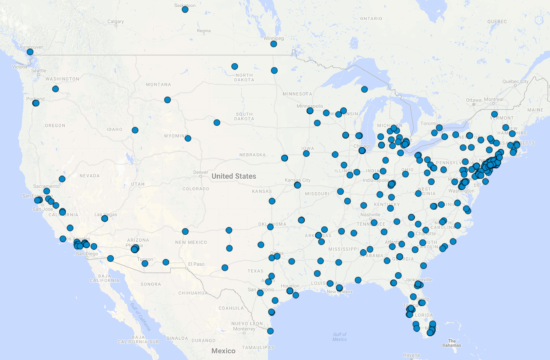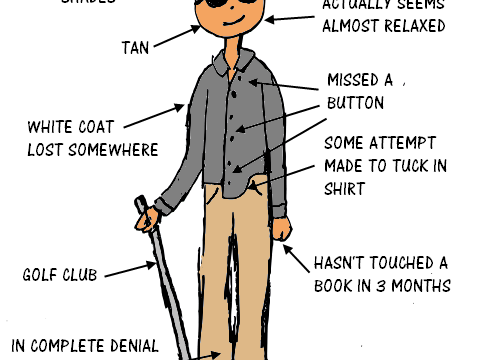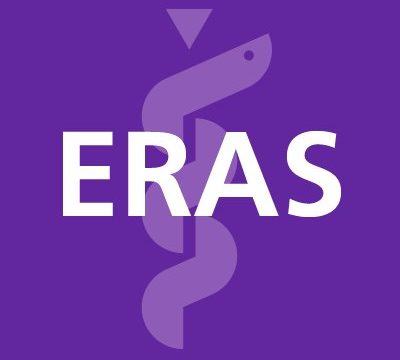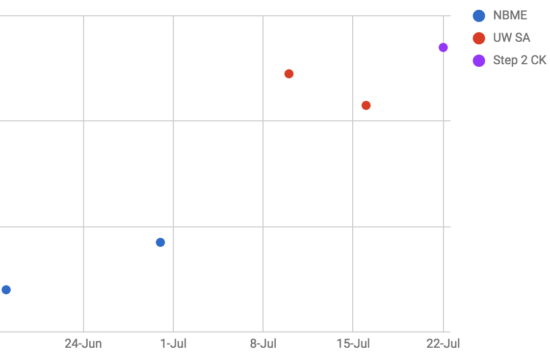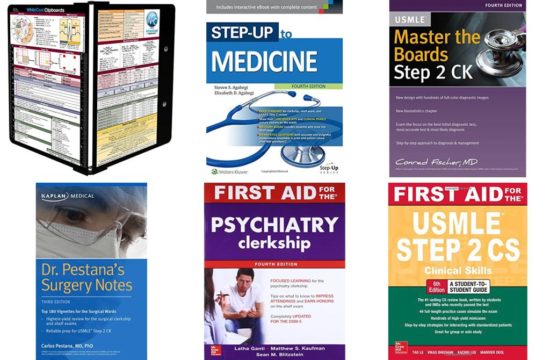There are tons of sites on the internet talking about how to prepare for interviews but not many focusing on residency interviews. Some of these will be expected but some might also surprise you. Again, programs differ dramatically however this should give some insight into what you might encounter.
Tell me about yourself.
- It wouldn’t be an interview if it didn’t start that way right?
Why this specialty?
- Most programs will ask this one, nothing to overthink. Be genuine, tell a story or recall an experience that pushed you one way or the other if you were between two.
Why this program?
- This question might actually be one of the more important ones so think about this for every program you go to. Programs want residents that will ideally stay and contribute back to the hospital or community after residency graduation. Being local or in-state will help for this one however if you are from out of state, bring up the value the program adds to you as well as how you can add to the program. If the program has any strengths that align with your interests or if you feel you can improve the program somehow, this would be a good place to bring it up.
Plans in 5 or 10 years?
- This is a common question and could also be phrased as what are your plans after residency.
How do you handle conflict/resolution? Example.
- Pretty straightforward interview question. Have a story or case ready. It can be medicine related however it doesn’t have to be.
Case: Ethics and/or medicine
- Depending on the program, especially family medicine, faculty usually includes someone who specializes in psychology or behavioral health. Because of this, their questions will feel super weird and out of scope but they will ask you some type of ethical case and see how you approach it.
- Similarly, if you’re in medicine or primary care interviews, this case might be more straightforward medicine or a patient family member conflict.
- You can’t really prepare for these but at least now you won’t be surprised.
What do you do outside of medicine
- Believe it or not, this is what I believe is the most important question, depending on how you answer it. Everyone applying for residency knows the same medicine. Realistically, some more than others but that’s what scores are for. Everyone who gets an interview has the same baseline medical knowledge. The interviews as a whole filters out who is socially capable of communicating. The last key that I keep mentioning is value. What is the difference between you and the other people interviewing with you this season? What experiences and skills do you have that you can bring and apply if you were to be a resident on their team or apply to patient care at their hospital?
- Even if you think your skills or experiences have nothing to do with medicine, break it down to the skills involved. Everything you do fundamentally can be tied back to becoming a good physician, you just have to think about how you want to approach it.
- For example, what does a wildlife photographer and a medical doctor have in common. With wildlife, you have to have an understanding of migratory patterns, baseline animal behavior, habits, routines. You need to have patience and perseverance. You can go hours without seeing anything and when you do you might have only seconds to act. You need to position yourself in advance and wait for things to happen. A lot of planning and foresight is needed to get the shot you want and the same thing never happens twice so you have to adapt to each situation as it comes up.
Any questions for us?
- By far the most frequently asked question of the day of each program. You are there to interview them just as much as they are interviewing you. If you have any future aspirations or plans, be sure to get a better idea of how they might help you get there. Residency graduation rates, any residents leave the program, fellowship opportunities, job opportunities, where those jobs are etc.
- Try to avoid asking questions that are already answered on their website.
Academics
- Surprising or not, only a handful of programs even asked about academics. All of your numbers, scores and experiences are already outlined in your ERAS application. There is no real reason to spend valuable interview time discussing it unless it truly is an important factor into why you are choosing this specialty.
- If there are any red flags, low scores, fails, etc, it might come up, but it also might not, if the faculty/interviewer feels that you have already took steps to mediate these shortcomings. Be prepared to discuss them if necessary though.
- In my experiences though, if scores trended up and hiccups happened early on in your medical school career, they are less likely to give you a hard time about it as it’s evident you have corrected those issues. You can however use them as experiences and stories about how you managed stress or handled yourself in tough situations.



